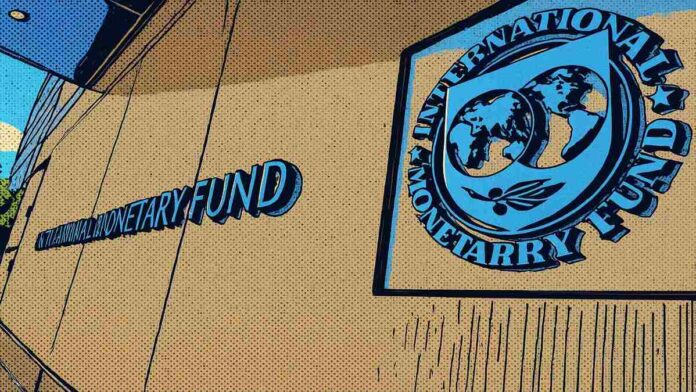The International Monetary Fund (IMF) painted a sobering picture of Europe’s economic future in its latest Regional Economic Outlook (REO) for Europe, released during a press briefing on October 17, 2025. While the region has navigated the aftermath of the COVID-19 pandemic and the energy crisis through “good policymaking,” IMF officials cautioned that the recovery is winding down, paving the way for “mediocre” medium-term growth plagued by structural challenges, geopolitical risks, and mounting fiscal burdens.
Alfred Kammer, Director of the IMF’s European Department, kicked off the briefing by emphasizing the transition from recovery to stagnation. “The pandemic and the energy crisis were huge shocks… Now we see the end of that recovery, and the end of that recovery goes into the medium-term dismal, mediocre growth for Europe,” Kammer stated. He highlighted short-term drivers like rising real wages boosting consumption and lower interest rates supporting investment, but warned of new headwinds from trade tensions and geopolitical uncertainties.
A key concern raised was the impact of potential trade tariffs, which Kammer estimated could cumulatively shave 0.5% off Europe’s growth in 2025-2026. This comes amid front-loading of exports in response to tariff threats, partially offset by increased infrastructure spending in Germany and defense outlays across the region. The IMF’s projections reflect a fragile balance, with growth expected to slow as these external pressures intensify.
On inflation, the IMF declared “mission accomplished” for the European Central Bank (ECB) in the euro area, where disinflation has durably reached the 2% target. Kammer advised the ECB to maintain a terminal rate of 2% and adjust only in response to material shocks. However, Central, Eastern, and Southeastern Europe (CESEE) countries face a different reality, with inflation 1-3 percentage points above targets and risks of de-anchored expectations. “CESEE countries need to be more cautious… and ease only gradually,” he added.
To combat the “dismal” outlook, the IMF urged bold reforms at both European and national levels. Key proposals include reducing intra-EU trade barriers, advancing the Capital Markets Union for deeper financial integration, enhancing labor mobility to align talent with high-productivity jobs, and establishing an Energy Union to lower costs and volatility. Nationally, structural reforms focusing on productivity could, combined with EU-level changes, boost GDP levels by 9% over 10-15 years. “Europe has excellent examples in place on what to do and how to do it,” Kammer noted, stressing the need to bundle reforms to ensure broad benefits and overcome political resistance.
Fiscal consolidation emerged as a central theme, with long-term spending pressures from aging populations, healthcare, pensions, digital transformation, clean energy transitions, and higher interest rates threatening to double average European debt to 130% of GDP over 15 years without action. Kammer warned that “the long-term, unfortunately, starts here and now,” advocating for productivity-enhancing measures to ease the adjustment burden by one-third to one-half over the next five years. He called on policymakers to use the EU budget to incentivize reforms and fund public goods like R&D, energy, and defense for efficiency gains.
The briefing fielded questions on specific countries, underscoring regional disparities. On Ukraine, amid ongoing Russian aggression, Kammer updated that discussions for a new IMF program are progressing, focusing on macro frameworks, structural reforms, and closing large financing gaps with donors. Growth projections have been downgraded due to infrastructure attacks and a prolonged war, with public debt expected to exceed 100% of GDP in 2025. He emphasized the need for durable revenue mobilization and anti-corruption efforts to prepare for reconstruction and EU accession.
For the UK, Deputy Director Helge Berger praised the shift to annual budget events but suggested refining fiscal forecasts and headroom to reduce volatility. He highlighted AI’s potential to boost productivity in the services-heavy economy, particularly finance, while cautioning on labor market risks.
Italy’s low growth (0.5-0.7% through 2030) was attributed to stagnation in consumption and exports, with Berger advocating continued reforms under the NextGenerationEU plan and fiscal overperformance to lower debt. Spain’s robust performance, driven by services exports (beyond tourism) and immigration-fueled employment, was lauded, but Kammer recommended productivity reforms, front-loaded fiscal consolidation, and addressing the housing affordability crisis to sustain momentum.
Switzerland’s conservative fiscal stance was viewed positively by Deputy Director Oya Celasun, given low debt and borrowing costs, allowing room for expansionary measures amid slack and deflationary pressures. Russia’s outlook was downgraded for 2025-2026 due to policy tightening and weaker demand, with medium-term growth remaining low from sanctions and war impacts.
Bulgaria, set to join the eurozone in 2026, faces solid 3% growth but must navigate high wage pressures and inflation, with Berger advising non-expansionary fiscal policies and EU-level reforms like capital market integration.
Overall, the IMF’s message was one of urgency: “Europe can act, Europe must act, and Europe must do so now,” Kammer concluded. Without decisive reforms, the region risks entrenched low growth and fiscal vulnerabilities in an increasingly uncertain global landscape.
For the full transcript of the press briefing, visit: https://www.imf.org/en/News/Articles/2025/10/17/tr-10-17-25-press-briefing-transcript-eur-reo
Disclaimer
The content on MarketsFN.com is provided for educational and informational purposes only. It does not constitute financial advice, investment recommendations, or trading guidance. All investments involve risks, and past performance does not guarantee future results. You are solely responsible for your investment decisions and should conduct independent research and consult a qualified financial advisor before acting. MarketsFN.com and its authors are not liable for any losses or damages arising from your use of this information.





